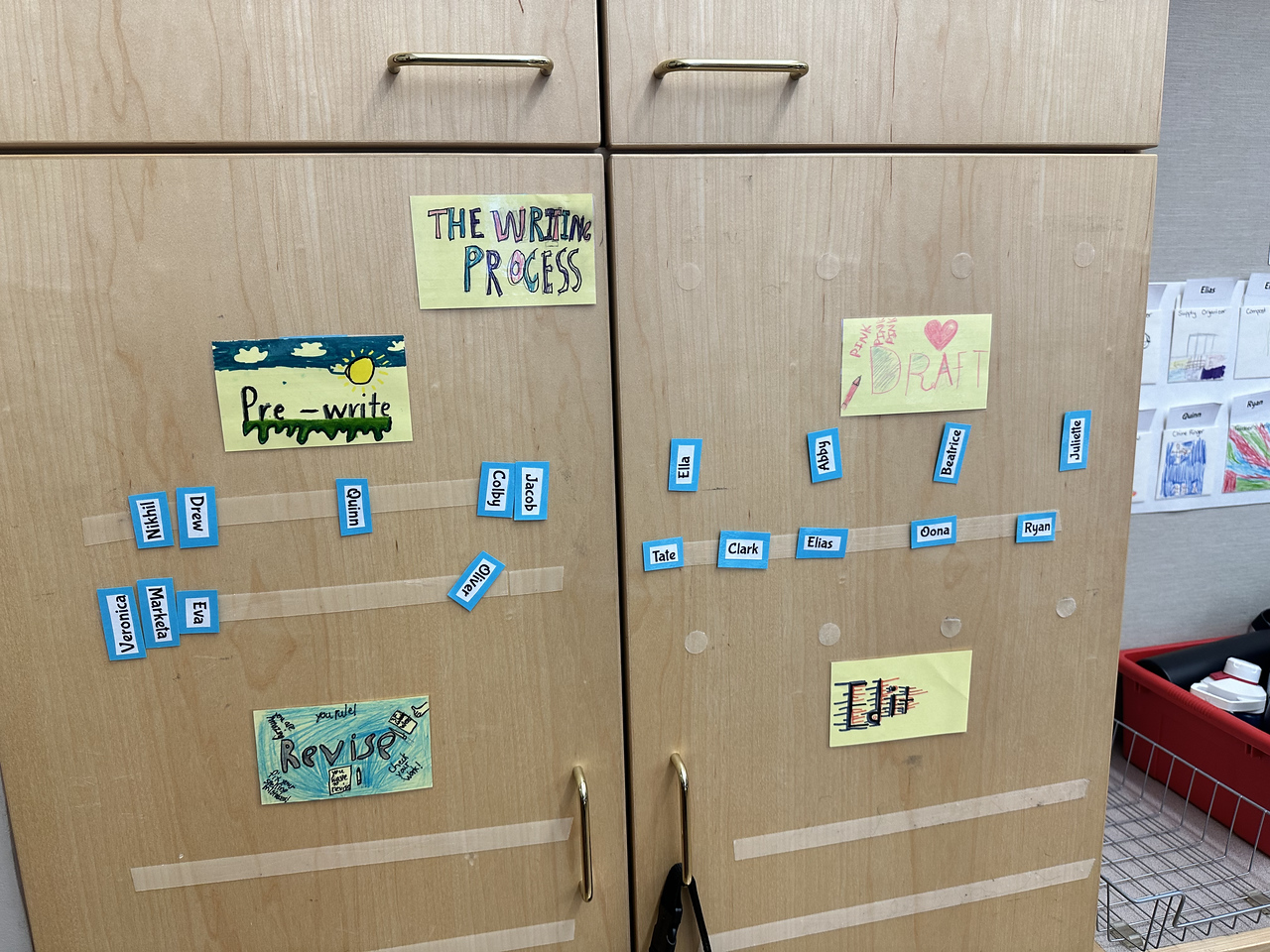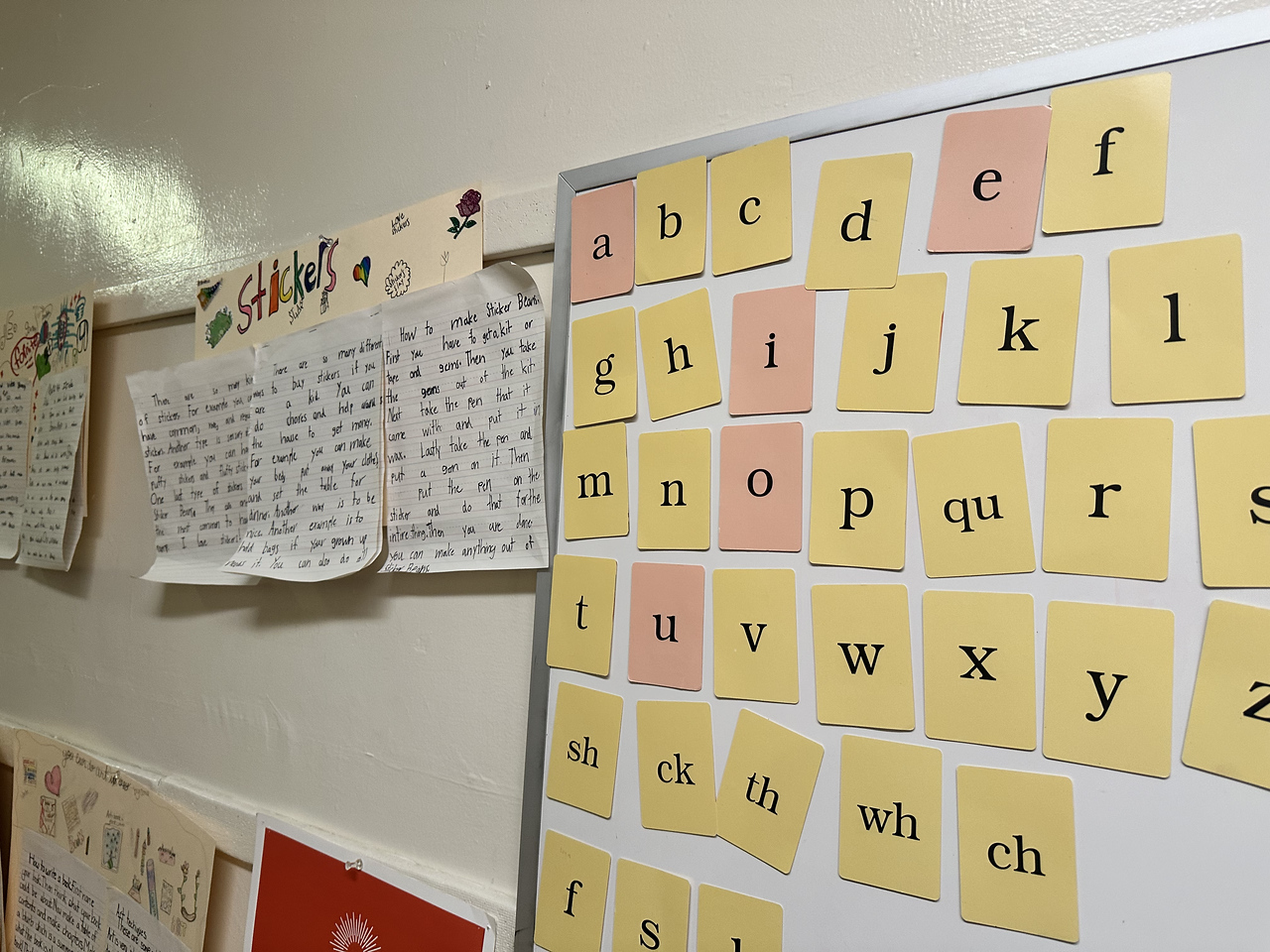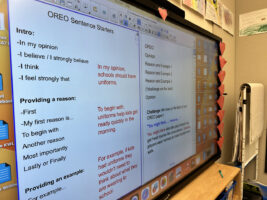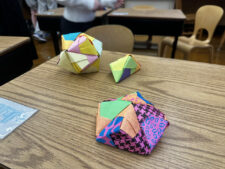In the bustling 3rd Grade classrooms at Ethical Culture, a transformative journey into the world of persuasive writing is underway. Since January, students have explored writing through a myriad of engaging activities and thought-provoking discussions.
3rd Graders start the academic year with a unit on personal identity, which then segues into a larger conversation about stereotypes that different people, and specifically Indigenous communities, face in the United States. Students are guided through this interdisciplinary unit by learning diverse perspectives on various issues, in addition to learning important terms such as stereotypes and cultural appropriation. This lays the groundwork for teachers to introduce persuasive writing in tandem with the importance of social justice movements and advocacy.
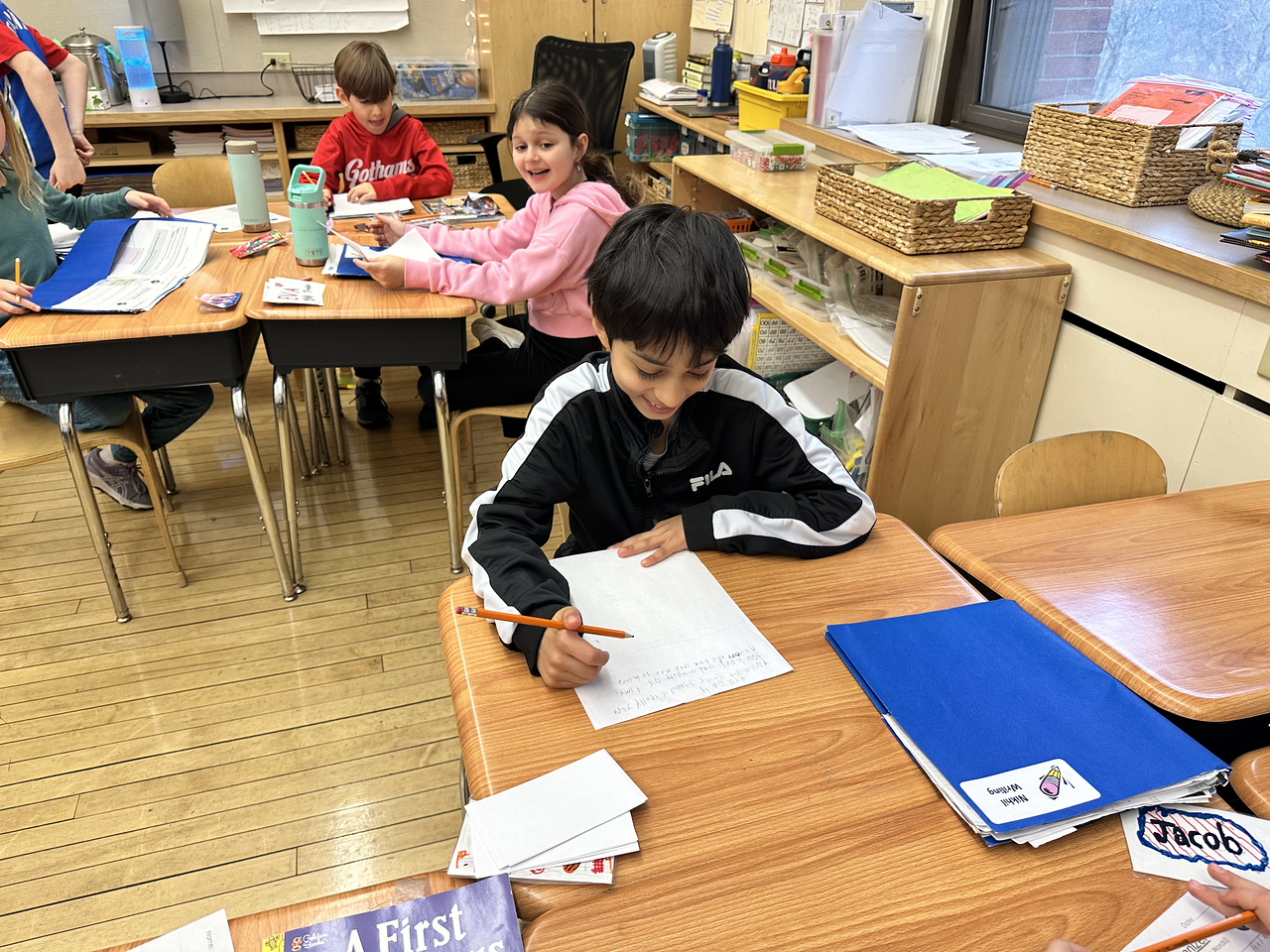
Throughout the year, 3rd Grade students engage in the writing process, progressing through the stages of planning, drafting, revising, editing, and publishing. Daily assignments and writing projects develop students’ ability to articulate clearly and proficiently, employing diverse sentence structures. As the 3rd Grade faculty navigates the writing process with students, they do so with a spirit of collaboration and support. Teachers scaffold learning experiences, providing specific examples and guidance, while empowering students to take ownership of their voices.
At ECFS, prioritizing a responsive curriculum enables our faculty to retain student interest in classwork. Once they have a solid foundation in the writing process, students begin to dissect persuasive articles to generate their own topics of interest. Examining powerful arguments allows students to hone their skills in formulating strong topic sentences supported by relevant examples and reasoning. This isn’t merely an academic exercise; it’s a journey fueled by passion and purpose.
At the heart of this project lies the power of choice. With topics ranging from the need for more recess to debates on school uniforms and cell phone policies, each student chooses a cause they are passionate about. Equipped with newfound knowledge and a burgeoning writer’s voice, they draft persuasive letters to challenge the status quo.
In a 3rd Grade classroom, Jacob S. ’33 was recently working through his OREO (opinion, reason, example) graphic organizer and explained his opinion that football is actually one of the safer professional sports to play, due to advancements in protective equipment and league rule changes.
Simultaneously, Eva E. ’33 listed several reasons and examples for why children shouldn’t have social media accounts. Eva had already created a detailed pros and cons list, determined her audience, and listed evidence to support her opinion.
The project’s next step will challenge students to weave together elements of what they’ve learned about persuasive writing, research, and social studies and confront Native American stereotypes head-on. Drawing inspiration from real-world examples like the renaming of the Cleveland Indians baseball team to the Cleveland Guardians, teachers delve into the complexities of identity and representation, enriching students’ understanding of the world around them. Students will soon select and write their own persuasive letters to advocate for change in harmful team mascots. Similar to their chosen personal cause, they are prompted to write these paragraphs with conviction, purpose, and abundant evidence to support their reasoning.
This journey is not confined to the four walls of Ethical Culture’s classrooms. Through self-selected social justice action groups, later in the year, students will begin to learn firsthand about the impact of activism and the power of collective action.
Learning is most powerful when students are motivated, supported, and can perceive the connections between their classes and their individual lives as well as the world at large. Teachers are envisioning ways to expand the project’s horizons — exploring summer camp names, dissecting Disney narratives, and even analyzing food packaging through a persuasive lens.
This unit is not just about mastering the mechanics of writing persuasive paragraphs; it is about cultivating a generation of critical thinkers and changemakers. In true ECFS fashion, through the power of persuasive writing, students are learning how to advocate for change and make their voices heard.
